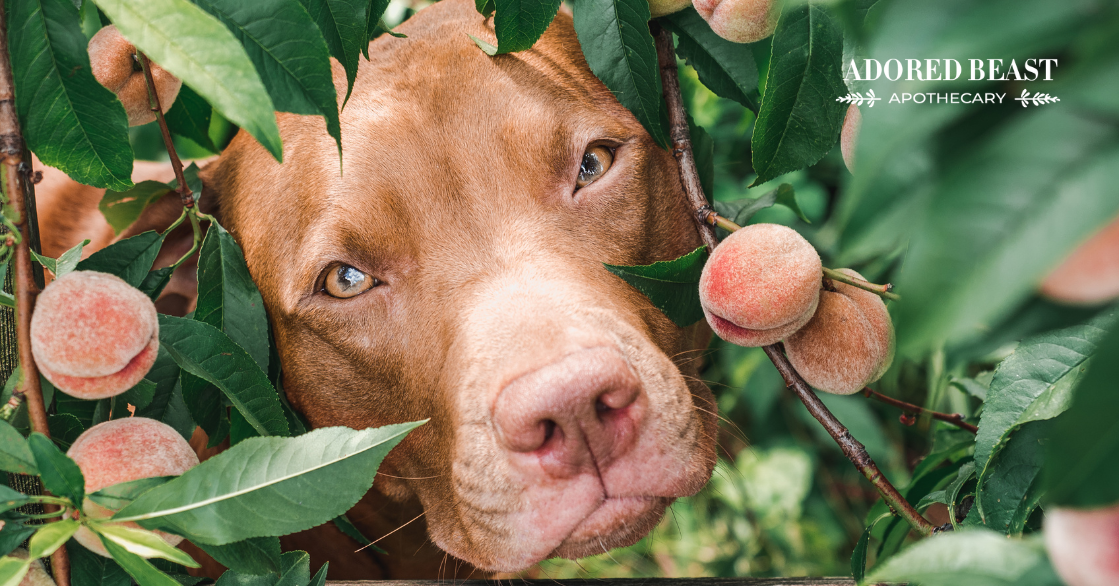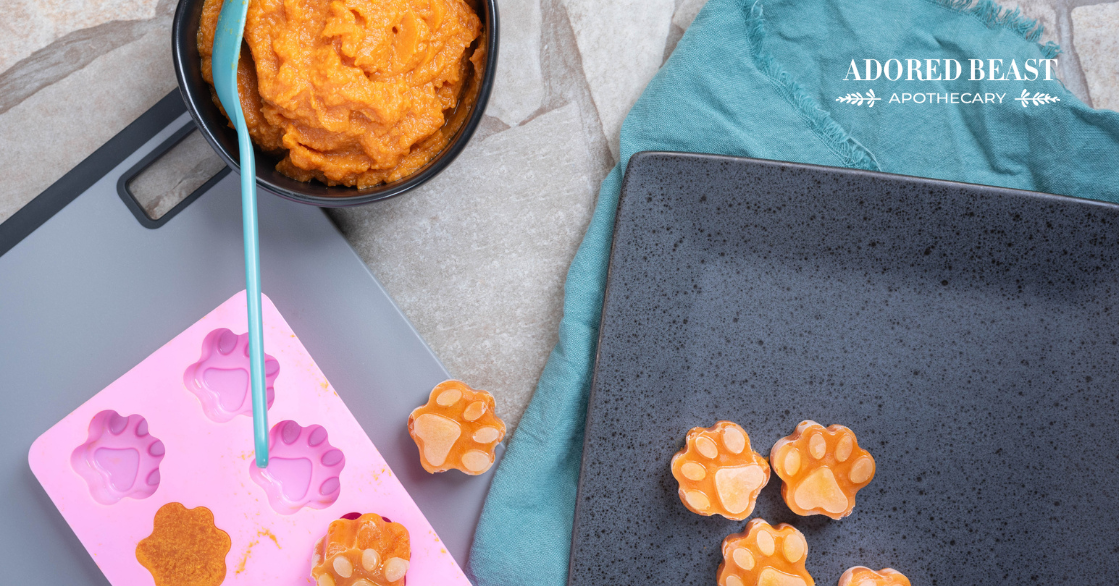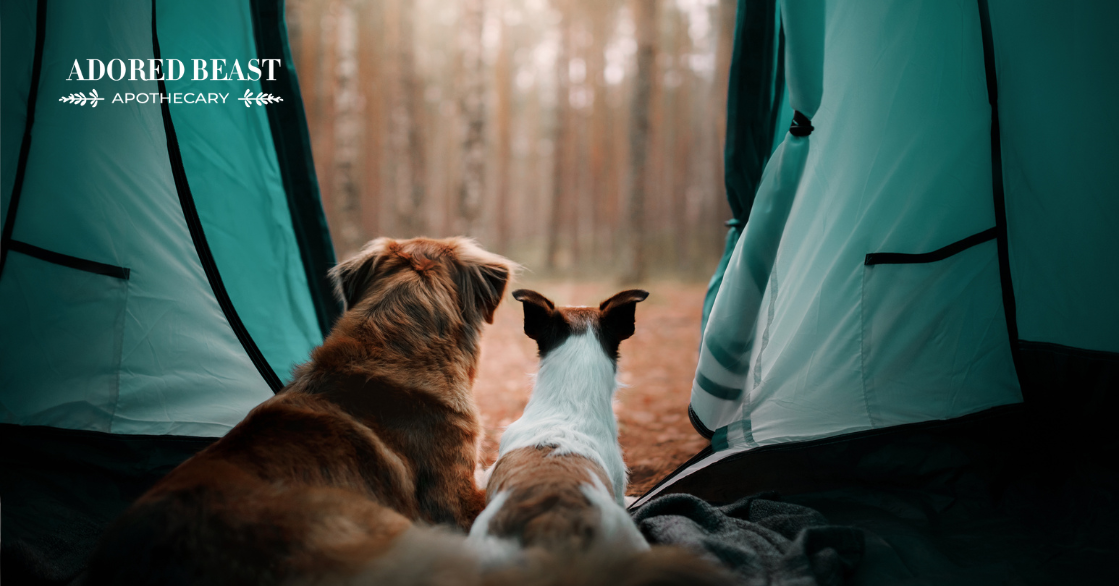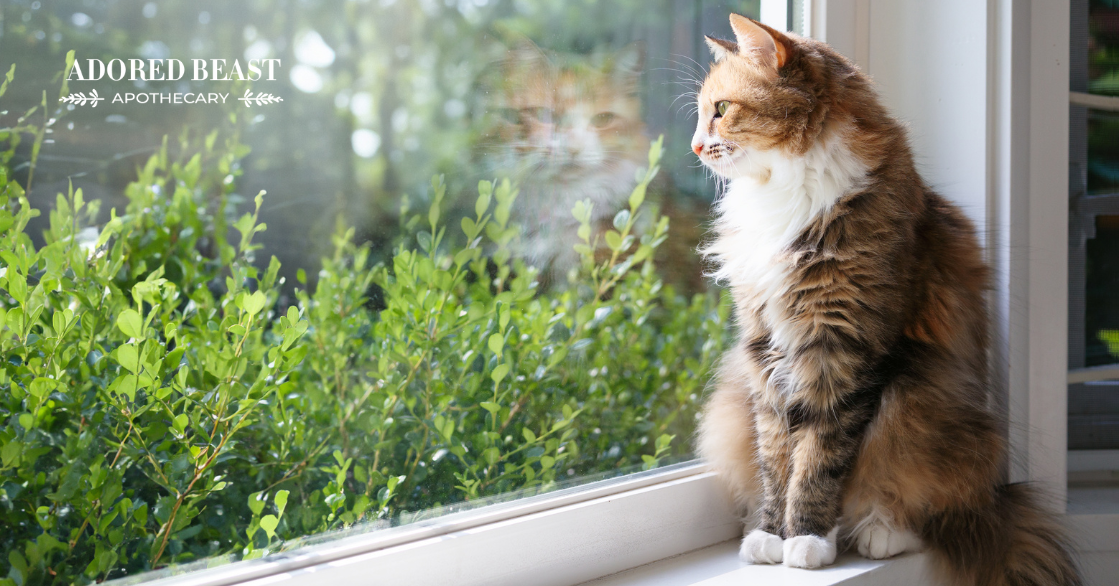Cancer is one of the leading causes of death for dogs in today’s world, and sadly, one in five cats get cancer. In their everyday lives, our animals face numerous stressors and environmental factors which can eventually cause this disease.
Facing cancer in our pets can be frightening and overwhelming. There is no doubt about that. So we have put together this guide to help you cope, and help you work through some of the different elements of a cancer diagnosis.
This is a guide to being proactive, protective, and present in the face of cancer. Use it to journey forward with love and understanding, and to provide all you can to your adored beast.
Facing a Cancer Diagnosis
How we face a cancer diagnosis can make all the difference in the world in how our animals cope, and how we cope.
Cancer does not always mean an immediate death sentence, but as with anything, we can’t always control the outcome. But what we can do 100% is control the experience and the choices we make within that journey.
When your animal or any loved one is diagnosed with cancer, you are not alone in that fear, terror, or anger. It’s what it naturally provokes. It is what we have been taught by well intentioned people that it needs to provoke. We can be mindful and try our best not to go down that rabbit hole.
Those negative emotions hold you in a place of disconnection, keeping you away from:
- Being able to clearly assess what’s happening
- Making choices based on what you truly want, rather than what you’re being told to do
- Most importantly, building the love connection with your dog.
Instead, take those emotions in, then work through them, but never let them take over.
Once you do this, you can provide the love your animal wants and needs and approach the diagnosis with a clearer head, finding an approach that can help keep them happy and their quality of life at the forefront of all your choices.
One way to do this is by digging deep into your heart to decide on what would your animal might want if faced with a diagnosis? This means doing a self assessment with each animal and sitting in a place of truth. Would your animal want to be away from you and in a hospital for days? Would they want the medications and potential side effects? Then, what do you and your family want? Do you want to be away from them for days, do you want to see them go through the side effects?
Before the diagnosis, understand the risks, alternatives, and prognosis… that way, if it happens, you are prepared and in a place of understanding instead of making choices from a place of fear. Whatever your choice is – fully alternate, fully conventional, or an integrative approach – if it comes from a place of the highest love, it will be the right choice!
No one has a crystal ball. No one can ever say what is the best treatment, but what I can say is that time is the most precious treatment, and has the most positive, long lasting impact when working with this disease. Spend absolutely the most time you possibly can with your beloved animal. That would be their choice – to have you near, present, and not scared. That doesn’t mean you are not sad, it means you are not scared, and that’s a very different emotion.💗
The Power of Oxytocin
Oxytocin has been dubbed the love drug, the feel-good hormone, the hug hormone, the cuddle chemical, and the morale molecule. It’s been described as the “most amazing molecule in the world.”
What it really is is a neuropeptide that inhibits stress-inducing activity of the hypothalamic-pituitary-adrenal axis and is increasingly becoming recognized for its role in bonding, socialization, and stress relief. This hormone has the ability to decrease cortisol, blood pressure, inflammation and pain. It’s used to treat anxiety, post traumatic stress, depression, debilitating shyness, social anxiety and mood disorders.
Pretty impressive, no? But wait, there’s more!
Now extensive medical research is looking into its role in cancer prevention and therapy:
- Research shows that in vitro (a study of cells in a test tube or under glass), oxytocin inhibits the proliferation (growth) of neoplastic (cancer) cells of either epithelial, mammary and endometrial, nervous or bone origin, all expressing oxytocin receptors.
- The Australian National University is looking into using oxytocin as a therapy in lung cancer, which one in 28 people are diagnosed with, and is the number one cause of cancer death in the country.
- Another study shows that oxytocin production in premenopausal, non-lactating women may be protective against the high rates of mitotic breast cell division (the stage and numbers of cancer cells dividing) in breast cancer.
Want to increase your animal’s production of oxytocin?
Oxytocin is produced naturally through the gaze a mother has with her infant or sexual partner in monogamous species. This gaze interaction, or loop, is what activates the production of oxytocin and the attachment or bond.
And in 2015, a Japanese study published by the American Association for the Advancement of Science concluded that we have an oxytocin-mediated positive loop with our dogs that’s similar to the one that exists in the gaze between a mother and her infant. It’s mediated by an eye-to-eye connection. This study determined that oxytocin levels increased in both humans and dogs, leading to the deepening of mutual relationships and interspecies bonding.
So, spend some time with your animal. Talk to them, snuggle them, read to them, just BE with them. This will help increase the production of oxytocin for both of you, and will make you feel better – we promise!
Homeopathy for Cancer
Homeopathy offers a gentle, very effective approach to cancer in dogs and cats. Whether you choose it as the only modality, as an adjunct to other alternative treatment, or as a support for conventional treatment, the goal is to try and gently bring the body back to balance.
One of the amazing benefits of homeopathy is that it works so quickly. With cancer, this can be so incredibly helpful if and when your animal is struggling with what are called acute symptoms within the chronic disease. As an example: pain, difficulty breathing, nausea, GI upset, infection… when you can support these issues, quality of life becomes exponentially better.
Homeopathy is so safe and can be used with absolutely any other treatment including chemotherapy, all conventional drugs, herbs, acupuncture, etc. You never have to worry that you will cause any negative interaction.
This is a brief overview of some of homeopathic remedies often used for cancer – each one has its own indications, so we always recommend working with a homeopath to develop a specific remedy protocol for your animal.
Osteosarcoma
- Any bone tumors or periosteum related cancers
- Not only used for the cancer but amazing for pain
- Bone marrow related (Leukemia)
Remedies: Hekla lava 200C and symphytum 200C
In her clinic, Julie usually started with symphytum and then added hekla lava if the symphytum was not lasting or making the impact it should.
Mast Cell Tumors
- Histaminum 30C
- Bellis perennis 30c
- Aconite 30c
Stomach – Pancreas – Intestinal
Mesenteric glands, mucous membranes (including lungs & esophagus)
- Hydrastis 200C
Lung – Liver – Colon
- Lycopodium 200C
- Phosphorus 200C
- Arsenicum 200C
Rectal Tumors – Anal Gland Sarcomas
Also for mouth, lips, urethra, especially if there is ulceration
- Nitric Acid 200C
Breast – Salivary Glands
Also parotid gland
- Phytolacca 200C
Brain Tumors
- Plumbum Lodatum 200C
Prostate
- Sabal Serrulata 200C
Bladder
- Terebinthina 200C
Lymphoma
- Echinacea 200C
- Calc Carb 200C
- Arsenicum 200C
Soft Tissue Sarcoma
- Bellis Perennis 200C
- Calendula 200C
- Thuja 200C
Homeopathy can also be very helpful for managing pain, nausea, and weakness, or for palliative care:
- Arnica 1M or 10M for any kind of pain – Give as needed
- If there is restlessness with the pain you simply add aconite 1M with the arnica as needed
- If bone pain, add phosphoric acid 1M to the arnica
- If there is weakness you can add phosphorus 200C and china rubra 200C as needed
- If there is nausea from drugs – nux Vomica 200C as needed
- If there is nausea not from drugs phosphorus 200C as needed
Supplements to Help Support Animals with Cancer
There are several different supplements that can be helpful for animals with cancer.
Turkey tail extract has been an approved natural therapy used alongside conventional treatments for cancer since the 1980s in Japan. Triterpenes in turkey tail mushrooms, used for their anti-inflammatory, analgesic, antipyretic, hepatoprotective properties, have been shown to have chemopreventive and chemotherapeutic properties.
Research shows that Chaga mushrooms have several anti-cancer abilities. These include selective apoptosis (cell death) in tumor cells (with no effect on healthy cells), inhibition of tumor cell proliferation, and anti-mutagenic properties. Numerous cancer studies suggest that, for a variety of different types of cancer, Chaga mushrooms may provide a new therapeutic option and a potential anticancer agent.
Research suggests that larch arabinogalactancan plays an important part in stimulating the immune system and helping to block the spread of cancer cells. It does this by activating macrophages and natural killer (NK) cells. These are two really important immune cells involved in the process of fighting cancer.
Cancer can cause significant gastrointestinal (GI) health effects, both as a result of the disease itself and because of treatment. Research shows that pre and probiotics can support the GI system, and may help to reduce Gi upset and irritation! They also help support the immune system and may even play a role in prevention.
Antioxidants help protect the body from the damage that free radicals can cause. Free radicals are molecules that lead to oxidative stress and potentially inflammation and cellular damage. Antioxidants help keep these in check, and research shows they even appear to kill cancer cells. One our our favourite is phytoplankton, thanks to its massive amounts of Superoxide Dismutase.
Cancer-Fighting Foods
There are many different foods you can feed to your animal to provide valuable nutrients that can keep them healthy, help keep their immune system strong, and help reduce the risk of cancer!
When you see a list of “cancer-fighting foods”, they are often plant foods loaded with phytochemicals, also called phytonutrients. Phytochemicals are compounds found in plants that can help prevent chronic diseases like cancer.
And these ones top the list!
- Apples
- Asparagus
- Blueberries
- Broccoli
- Brussels sprouts
- Cauliflower
- Garlic
- Kale
- Leafy greens
- Pears
- Raspberries
- Spinach
- Winter squash
Tip: Rotate to provide variety & try to always buy organic!
Pet Safe Cleaning Recipes
The air in our homes is filled with potentially carcinogenic compounds released by air fresheners, cleaners, detergents, and disinfectants. To help minimize the risk of these irritants, switch to natural cleaning! The Environmental Working Group has lots of resources that can help with this!
- All Purpose Cleaner – Mix one part vinegar and four parts water in a spray bottle. Add some lemon juice to the mix and shake, shake, shake.
- Stain Remover – In a bowl, stir together 2 tbsp baking soda, 1 tbsp warm water, 1 tbsp apple cider vinegar. Mix it together until it forms a thick paste. Add more vinegar if you need a little more liquid. Use a sponge or rag and scrub those tough spots using a circular motion. Rinse well with warm water.
- Glass Cleaner – Add 5 tablespoons of lemon juice to 2 liters of water and mix well. Pour into a spray bottle, then wipe the surfaces clean with a clean lint-free cloth or old cotton t-shirt.
- Floor Cleaner – For vinyl or tile flooring, pour 1 cup of vinegar (white or apple cider) and 1 litre of water into your mop bucket, give it a little stir, and mop away. For hardwood flooring, consider something less acidic, such as castile soap. Mix 4 cups warm water and a few drops of castile soap. And remember, don’t let the water sit for too long on the floor.
It’s Going to be Alright
If you’ve received a cancer diagnosis for your animal, I know it may be hard to believe this, but it’s going to be alright.
Whether you are blessed with a lot of time, or have to make the most with the time you have, know that you have done your best by your animal. Give them the love and support they want and need. Be present. Spend time just being with them. Don’t let fear impact your time with them. Your animal lives in the present. Today is their best day ever. Try to remember that, and be positive, and your animal’s life will be better as a result.












